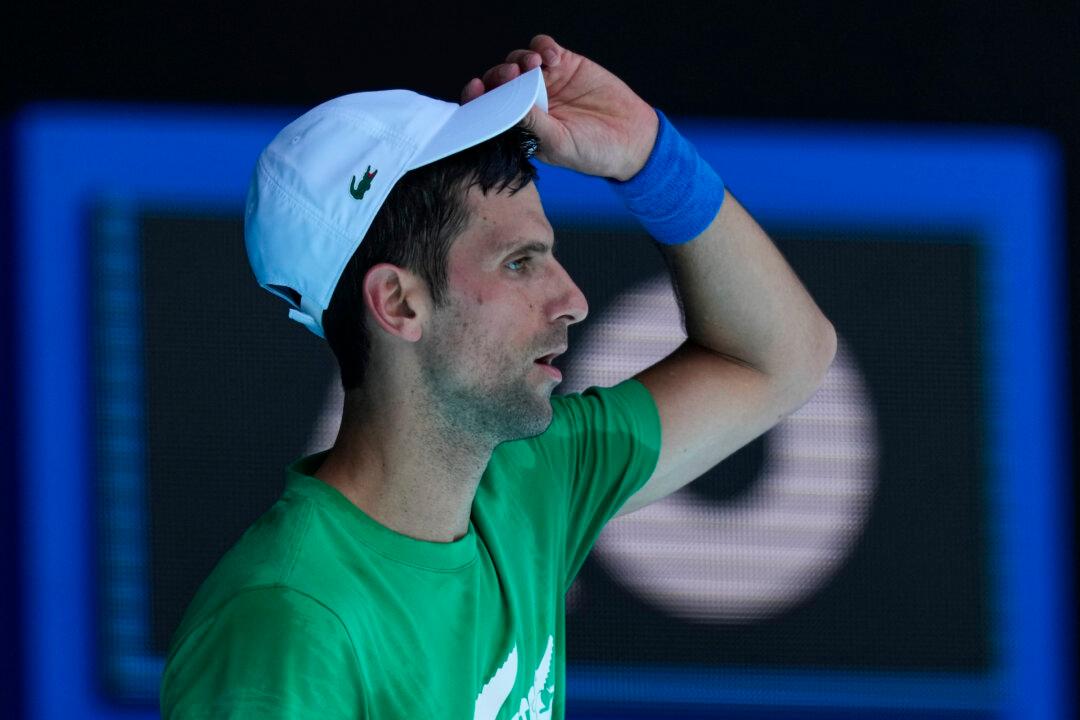The Australian government has said that while Novak Djokovic poses a “negligible” risk of spreading COVID-19, his mere presence could stoke “anti-vaccination sentiment,” court documents reveal.
Djokovic’s lawyers, meanwhile, have argued that the case against the tennis star was “illogical” and that Immigration Minister Alex Hawke’s reasoning was affected by the jurisdictional error identified last week.




